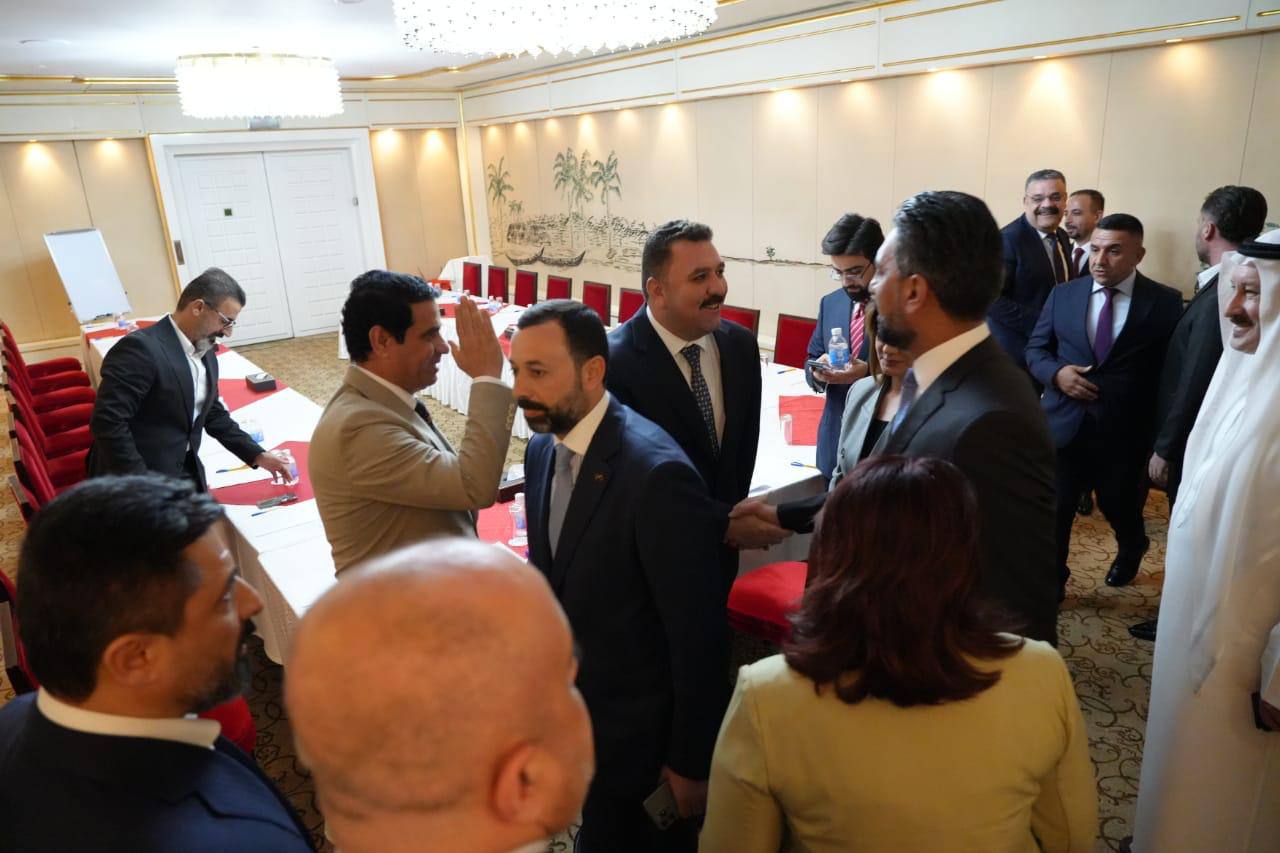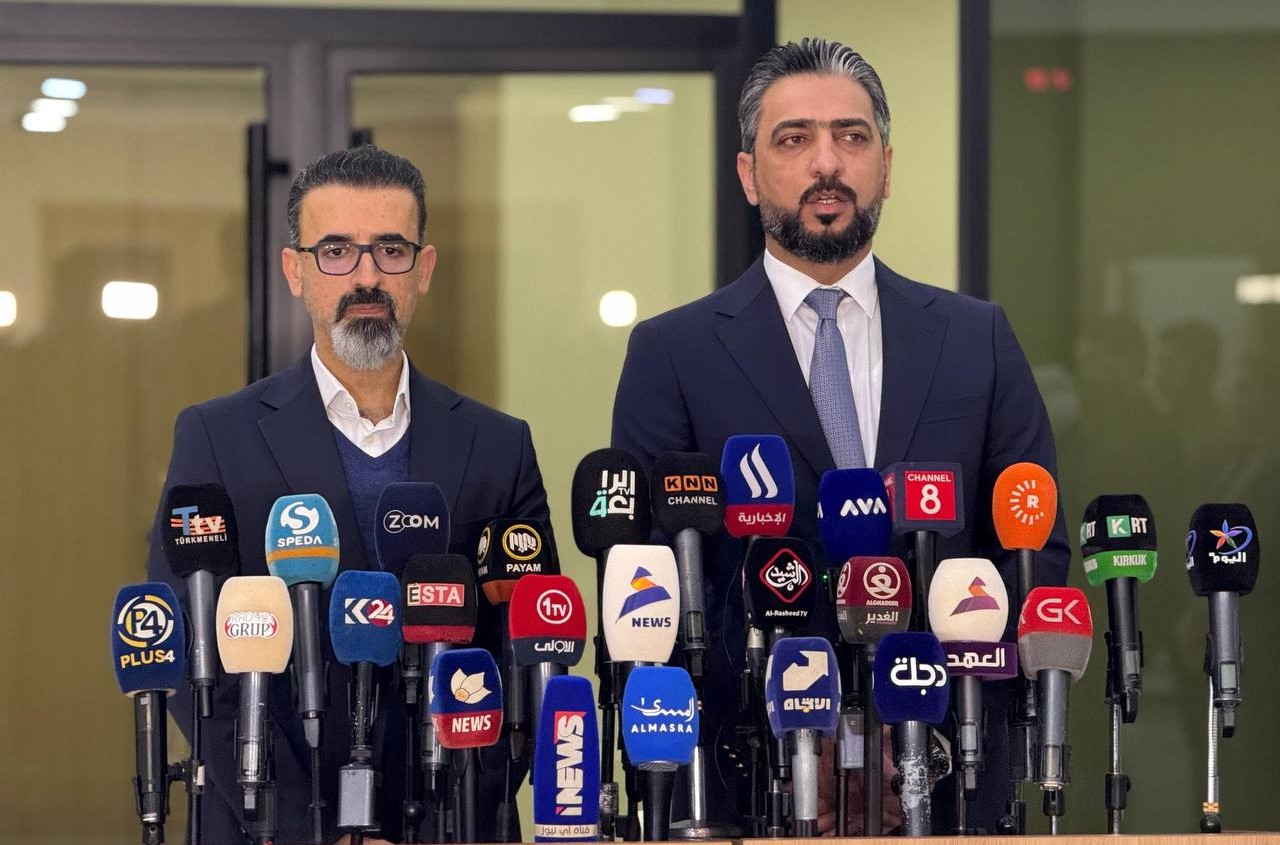Although the Supreme Administrative Court has rejected all legal claims against the new local administration of Kirkuk province, the fate is still unknown as opposition blocs refuse to give up, disrupting sessions of the provincial council.
The rejected petitions were filed by Arab, Turkmen, and Kurdish protesters to cancel the outcome of the meeting at the Rashid Hotel in Baghdad, which elected senior positions in the council and local government.
In recent months, both the Administrative and Federal Courts have rejected several lawsuits from the protesters, the latest being on January 22 this, which upheld all the procedures of the Baghdad meeting to decide the Kirkuk government.
Among the complainants were Rakan Saeed Juburi, the leader of the Arab coalition and former governor of Kirkuk, Hassan Turan, the leader of the Iraqi Turkmen Front ITF, against appointment of Rebwar Taha, a Kurd, as governor of Kirkuk, and Mohammed Hafeez, who was elected as the provincial council chairman with the appointment of Ibrahim Tamim, brother of Planning Minister Mohammed Tamim, as deputy governor.
The Kirkuk government was formed on August 10, 2024, by an agreement between the Patriotic Union of Kurdistan PUK, some Arabs, several Shiite Turkmen parties outside the provincial council, and the last Christian, on the condition that senior positions, including governor and council speaker, be shared between the Kurdish and Arab communities.
The protesters, including the ITF, the Kurdistan Democratic Party (KDP), the Arab Coalition, and Siyada (Sovereignty), believe the current government has violated the law and have since boycotted the provincial administration.
The northern, multiethnic, oil-rich province of Kirkuk home to over 1.77 million people is a disputed area between the two federal governments of Iraq and the Kurdistan Region, and the decision of its fate is within the framework of Article 140 of the constitution through three stages of normalization, census, and referendum.

The Turkmen Front announced a boycott of the ruling coalition, which formed the Iraqi government, just a day after the Administrative Court ruling, accusing the judiciary of "illegal pressure" to resolve cases.
They also warned that the failure to consider the characteristics of Kirkuk in the court's verdict is "dangerous and unprecedented," insisting that the provincial council meeting in Baghdad was illegal, because power in Kirkuk must be distributed according to fair representation despite elections results as it is stated in the Provincial Council Election Law no. 12 of 2018 as amended.
"We reject the Rashid Hotel meeting, with all its consequences, and hope that the Administrative Court will put things back on track and restore justice and rights for the Turkmen and the people of Kirkuk," according to the ITF's statement.
The meetings of the Kirkuk provincial council have been disrupted as they failed to meet the quorum, after a member of the Rashid Hotel Front, which formed the government, did not participate in the past three sessions.
The Arab Coalition led by Rakan Jabbari and the Siyada Party issued a joint statement against the decision of the Administrative Court, saying: "The court's decision was a shock to the people of Kirkuk, especially the Arab community."
The two parties are unhappy with the decision and are still unwilling to recognize the Kirkuk government. "We express our deep surprise and concern at the decision that is inconsistent with the judicial precedent that has always been in the interest of law and justice."
The 16-member Kirkuk provincial council is divided into two opposing fronts: nine of the government or the Rashid Hotel Front versus seven of the protesters. Both fronts have been unable to carry out their duties properly due to conflict and boycotts, including resolving all administrative positions, approving the budget, and distributing service projects to the regions.
The court's decision threatens peaceful coexistence in Kirkuk
The Kirkuk and Garmiyan Office of the (KDP) has issued a statement saying that the decision of the Administrative Court on the administration of Kirkuk is a violation and dangerous, threatening the peaceful coexistence of the communities in Kirkuk.
They also stressed that they will join the protests against the decision and support all legal and constitutional measures to "correct this mistake" and lift "the oppression" of the will of the voters of the province.
Rebwar Taha's election as governor of Kirkuk was not unexpected, as he was named for the post several months before the election, even before the provincial council election process, but more controversy arose over the post of council speaker.
Many expected an intense battle and huge conflict when deciding the government, before nine council members met in a hall of the Rashid Hotel in Baghdad last August and quickly, calmly, with a smile and a memorable "selfie," decided the government and posts. Kirkuk has elected governor and provincial council chairman for the first time since 2005.
Rebwar Taha is the governor from the Kurdish/(PUK), and Mohammed Hafez is the speaker of the provincial council from the Arab/Taqadum party led by former speaker of the Iraqi parliament Mohammed al-Halbusi.
There was a lot of pressure to form the Kirkuk government from all sides, especially Prime Minister Mohammed Shia Sudani, who played a clear role in resolving the governance crisis in the province, bringing all the winning parties in the provincial council together more than once.
The delegation of some of the Arab parties, which was one of the main parties of the meeting at the Rashid Hotel, was at the house of Mohammed Halbusi a few minutes earlier. Rayan al-Kildani, leader of Babilyoun Bloc and Christian groups among the pro-Iran paramilitary of Popular Mobilization Forces PMF, was one of those celebrated Rashid Hotel deal along with Bafel Talabani, the leader of the PUK, who won the governor's post after seven years.
Although the Turkmen issued statements and protests against their marginalization, the photos showed a different scene. Gharib Askar, Kirkuk MP on behalf of the Turkmen and deputy speaker of the Iraqi parliament, congratulated Rebwar Taha and the success of the meeting. Turkmen were promised to fill the position of including Deputy Governor and Vice Chariman of council.

Other Arab parties, especially Rakan Jiburi, who served as governor for seven years, called the participation of some Arabs in the meeting "treason," followed by a wave of accusations and media warfare on both sides of the Arab community.
For more than eight months after the elections, the debate between the parties on the distribution of senior posts, especially the governor, yielded no results, neither before the provincial council meeting at the Rashid Hotel, nor after the election. No details have been published about rotation of positions in the next four years.
The main debate on the governor's post, especially for the Kurds (seven seats) and Arabs (six seats), was that each side should hold the post for a couple of years, then exchange it with the post of council speaker. The two positions could have been exchanged between the three communities during the four years, the Turkmen suggested.
The highest legislative and supervisory authority within the boundaries of the local administration shall be with the Kirkuk Provincial Council, which has the right to issue internal laws and instructions for managing the affairs of the province, formulate the general policy, discuss and approve the local budget and project plans.
Earlier, during the Ba'ath regime, most of the main joints of administration and governance in Kirkuk were in the hands of the Arab community, without any elections, and after 2003, the Kurds were at the top of the executive power. They appointed the governor until 2017, and then the governor's post fell back to the Arabs up to 2024, until a Kurdish candidate from the PUK faction took the post again.
The first governor of Kirkuk after the 2005 provincial council elections was Abdulrahman Mustafa from the Kurdish community. In 2011, Najmaddin Karim was elected governor from the Kurdish/PUK by the same council yet after six years, by a decision of the Iraqi parliament, he wasremoved him from office.
In 2003, 32 % of the administrative posts in Kirkuk have been allocated to Kurds, Arabs, and Turkmens, and 4% to Christians, based on a project by former Iraqi President and the late PUK secretary Jalal Talabani. The project was agreed upon in July 2009 by the Kirkuk provincial council, although it did not extend to the lower posts.
*This story has been produced as part of the 'Budget is Your Right' initiative, with support from the National Democratic Institute (NDI).





